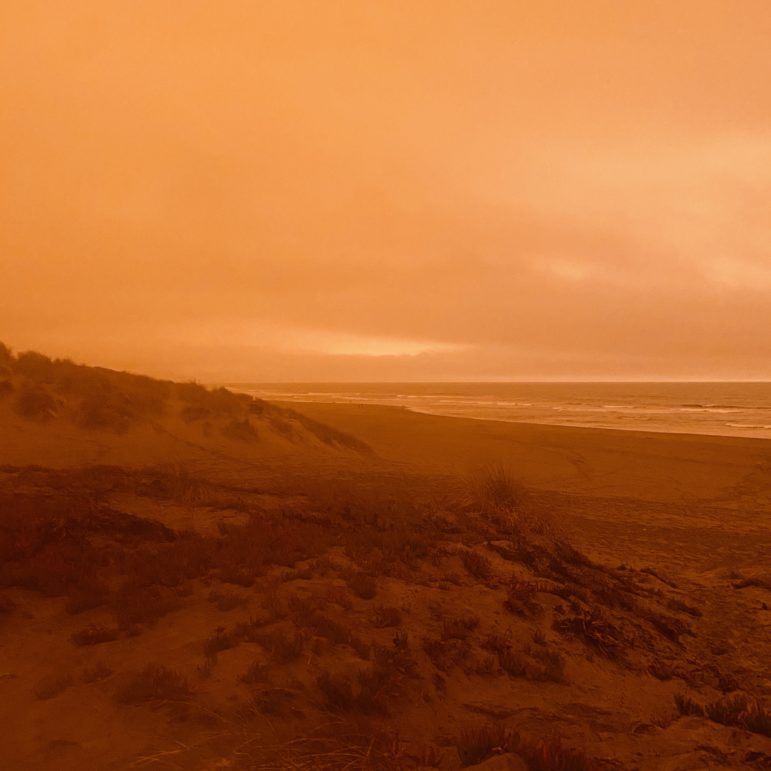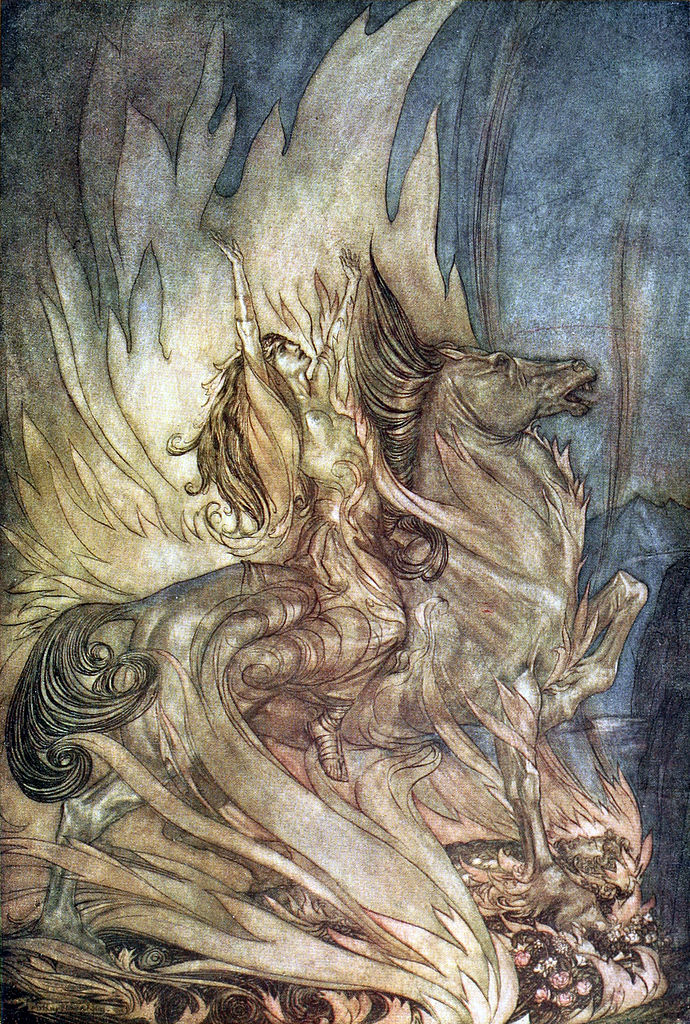
I had a dream, which was not all a dream.
The bright sun was extinguish’d, and the stars
Did wander darkling in the eternal space,
Rayless, and pathless, and the icy earth
Swung blind and blackening in the moonless air;
Morn came and went—and came, and brought no day,
And men forgot their passions in the dread
Of this their desolation; and all hearts
Were chill’d into a selfish prayer for light..
-Lord Byron, “Darkness”
Someone dear to me sent me a message earlier this week, asking if I knew of a good deity to ask for rain. I was surprised, because she was not, as far as I knew, a Pagan in any sense, outside of sharing with us a deep love of nature. “It’s been 150 days without a drop and everything is on fire,” she explained. “My friends and I are all starting to pray to personal gods for relief. And this is a group that doesn’t pray.”
She lives in Las Vegas, where she works as an organizer for an environmental advocacy group – more than nearly anybody else I know, she is in the thick of the fight against climate change and for environmental protections. (She, indeed, was the first person I called when I read about the Great American Outdoors Act – if there were anyone I could trust to give me a straight read on the benefits and unexpected consequences of the bill, I knew it would be her.)

A beach in the San Francisco Bay area on Wednesday, 9/9/2020, where even at noon the world was orange due to smoke from wildfires [M. Elison, courtesy]
There are some who will jump straight to magick or prayer when confronted with problems like this, but I knew she was not one of them – which indicated to me just how serious the situation must have seemed to her. She sent me a picture from her window, looking out over the city; the entire frame was covered in a dirty orange haze, the buildings of downtown inscrutable ghosts vanishing into the dust. “This is Vegas right now,” she said. “That’s smoke.”
I have my rain god – I wear Thor’s hammer around my neck every day – and while I have never claimed much talent in the ways of sorcery, I have my ways of asking the gods for assistance. I messaged her back and told her how to do a simple blót with mead or dark beer, preferably at the base of an oak tree. (“We don’t have oaks,” she said, “but we have locust. It’s closer than a Joshua tree.”) I made my caveats: that prayer and magick is scientifically dubious, that under polytheism the gods are not omnipotent, that sometimes magick doesn’t work, or doesn’t work for a long time. She understood that; she also understood that these were times to be open to all options.
“As I was choking my way through the parking lot at the store to buy groceries for a friend sick with the plague,” she told me, “texting another friend to see if she had gotten home yet from her evacuation from the double hurricanes, I was hit with this massive feeling of grief. It’s not just a randomly bad year. It’s the result of our own human activities, when we knew this would be the outcome. We were warned, and yet, here we are.”
As I listened, I had my own wave of grief. I would like to say that all the talk of apocalypse is overblown, but then I see what this year has brought – these days when the sun does not seem to rise in San Francisco, these days where 900,000 are dead worldwide from the coronavirus, these days where fascist gunmen are brawling in the streets with antiracist protesters – and it does feel like the end of the world. Like the end of the world that I have known, anyway.

Arthur Rackham’s illustration of Brünnhilde leaping onto Siegfried’s pyre at the climax of Wagner’s Götterdämmerung, 1911 [public domain]
I have never lived my life by a linear sense of time. I grew up in institutions of circularity: in the Wheel of the Year of my Wiccan parents, in the academic calendar that governed the schools and universities in which I spent most of my working life. Even today, my working life, wherein I help teachers and custodians negotiate union contracts, is built around that seasonal calendar. There is a comforting regularity to knowing that one’s life always will revolve around again, to Mabon or Harvest Home, to the Back to School season, to autumn and all that comes with it. The comfort comes in knowing that we belong to something larger and more stable than ourselves, a world whose rhythms proceeded before us and will still be playing long after.
At a certain point, though, the logic of circular time can throw a shroud of permanence over existence, making it seem that things are fixed in their procession, unalterable, when this is not the case. In my working life, this is the illusion that the current configuration of relationships between people and the educational system is permanent, despite these arrangements having only existed for a few decades or a century at the most. And in my religious life, it is the illusion that no matter what, the Wheel of the Year will continue turning, that the seasons will exist as they always have, that fundamentally the human relationship to the earth will continue on and on forever.
This is not completely wrong. But it is also far from completely true. The wheel changes as it turns, and it changes through human agency and human choices. There have been wildfires in California for a long time, longer than colonists have recorded them, but three of the four largest are burning right now, today. The seasons change, not only from season to season, but the seasons as seasons. I think ahead to what they might look like in fifty years – in only twenty-five – and the wave of grief hits me again.
Though an apocalypse seems like the end of time, I find it worth reminding myself that every grand finale in myth is the ending not of existence, but only of a particular movement. Animal, human, and even divine life continues after Ragnarök; even in the Christian Armageddon, the end of the world is not the end. New worlds are born in the ashes of old ones. That’s little comfort to those who have to live through such revelations, but it reminds me, at least, that there’s something worthwhile in persisting, in not simply accepting this state of affairs as permanent. As the Anglo-Saxons would have it: Þæs ofereode, þisses swa mæg; “that passed, and maybe this will too.”
I promised my dear one that I would do a blót to Thor for her as well. Even as I pour the beer into my horn, I wonder if there is a point to it, if, in the midst of all this tumult, one should bother to entertain the idea of magick. I don’t know; as I say, I have never been much of a sorcerer. But I do believe in an enchanted world; I do believe there will be a time when this has passed. I do not pray for the gods to solve our problems. I pray for the strength to shape the world to come into a better form than the world that came before.
The Wild Hunt is not responsible for links to external content.
To join a conversation on this post:
Visit our The Wild Hunt subreddit! Point your favorite browser to https://www.reddit.com/r/The_Wild_Hunt_News/, then click “JOIN”. Make sure to click the bell, too, to be notified of new articles posted to our subreddit.